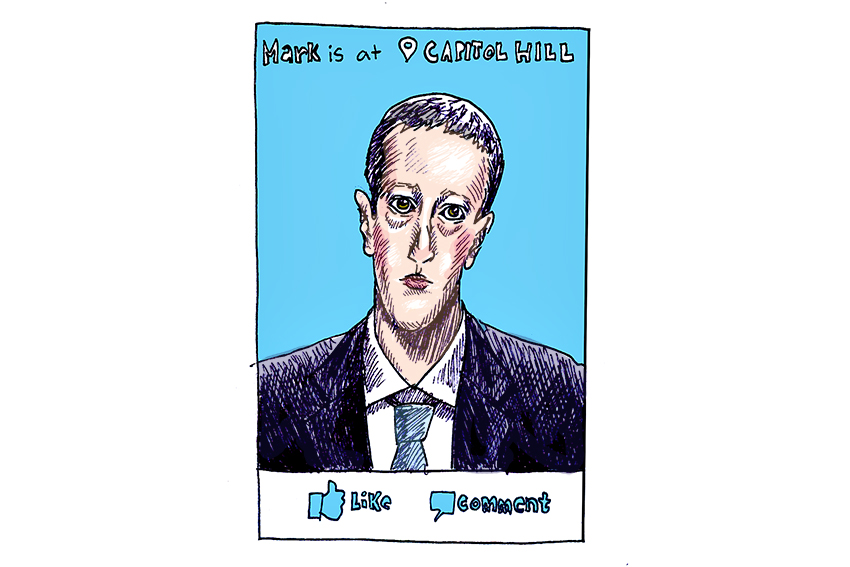Facebook came under fire earlier this month after it was revealed the political data firm Cambridge Analytica had harvested data from up to 87 million users, hoping to glean insight on targeting American voters.
Since Tuesday, founder and CEO Mark Zuckerberg has appeared before two committees of Congressional lawmakers to testify about the security and privacy issues raised by the data leak.
“It was my mistake, and I’m sorry,” Zuckerberg said during an appearance before a U.S. House of Representatives committee Wednesday. “I started Facebook, I run it, and I’m responsible for what happens here.”
While Congress lawmakers have yet to come to a unified decision on the best way to proceed, the revelations have sparked intense debates over the future of the technology industry and a potential crackdown on its regulation. But the data leak is nothing new for those already entrenched in the world of information security.
The University’s School of Information has been studying the implications of Facebook and the information infrastructure for nearly a decade, said information studies professor Andrew Dillon. After listening to a student presentation on Facebook’s privacy policy nearly seven years ago, Dillon decided to delete his own Facebook account.
“It caused me to look more deeply into what Facebook was doing and extract myself from it,” Dillon said. “What’s interesting is they made it extremely difficult to take yourself out. It’s very insidious.”
Cambridge Analytica used details of users’ identities like political beliefs, interests, friend networks and “likes” in an effort to compile profiles of American voters, according to the original report by The New York Times.
Facebook currently allows third-party apps access to Facebook information, with users’ consent. A Facebook statement last week promised to tighten control over those apps and their use of data.
Dillon said although Facebook’s manipulation of users for “fairly nefarious purposes” is not a new process, many people are just now starting to realize the extent of their relationship to the company.
“You are the product, and people are making money out of your transactions, your data, your behavior, your preferences,” Dillon said. “I have to laugh when Zuckerberg says our mission is to connect people. I scoff, because that’s not Facebook’s mission. Their mission is to make money out of connecting people. Otherwise they don’t exist.”
But for many, the benefits of Facebook’s social connectedness and sense of intimacy outweigh the costs, said journalism professor George Sylvie, an expert on technology’s role in media.
“People don’t want to quit Facebook,” Sylvie said. “It’s better than telephone — we’ve all got crazy cousins we don’t want to talk to but we can at least keep in touch with. It’s a tough situation to ask people to withdraw from Facebook, so instead of that people want some kind of action.”
Plan II freshman Ross Trivisonno said though he was angered about the data leak, it would take much more for him to delete Facebook, a necessity on par with email or text for him.
“I hear about all these people deleting their Facebook profiles and protesting,” Trivisonno said. “But for me, Facebook is such a major platform that I would never think about deleting my account. It’s upsetting, but it’s not like it’s going to change my life.”
To check if your Facebook data was accessed, use this link















